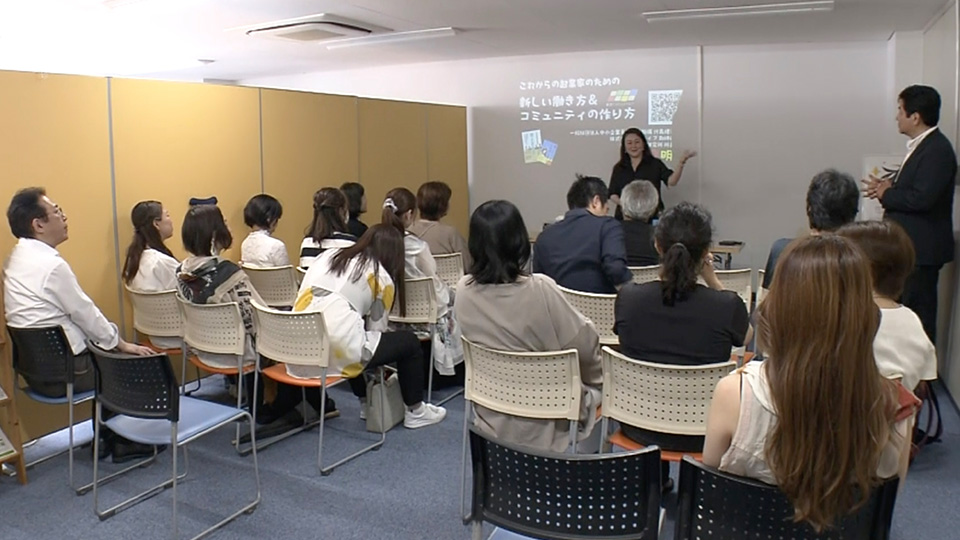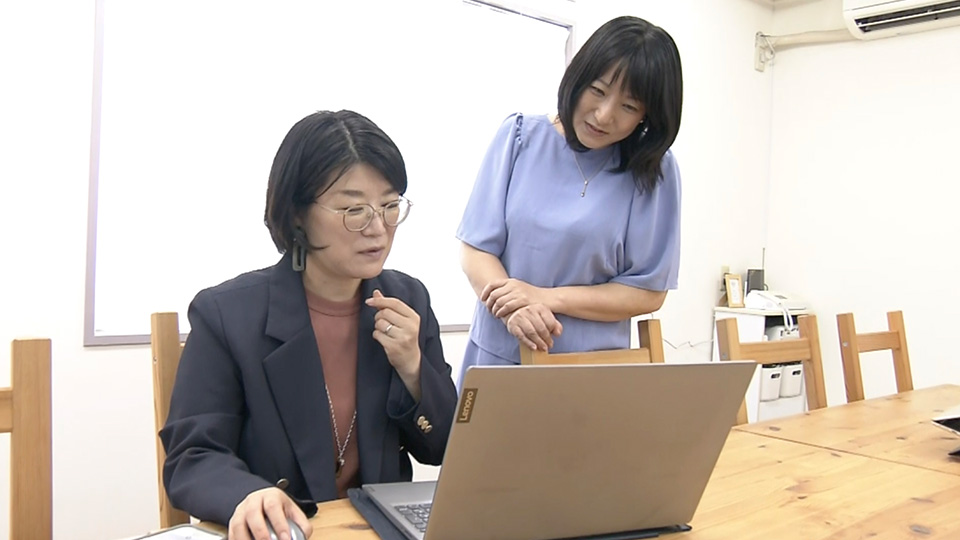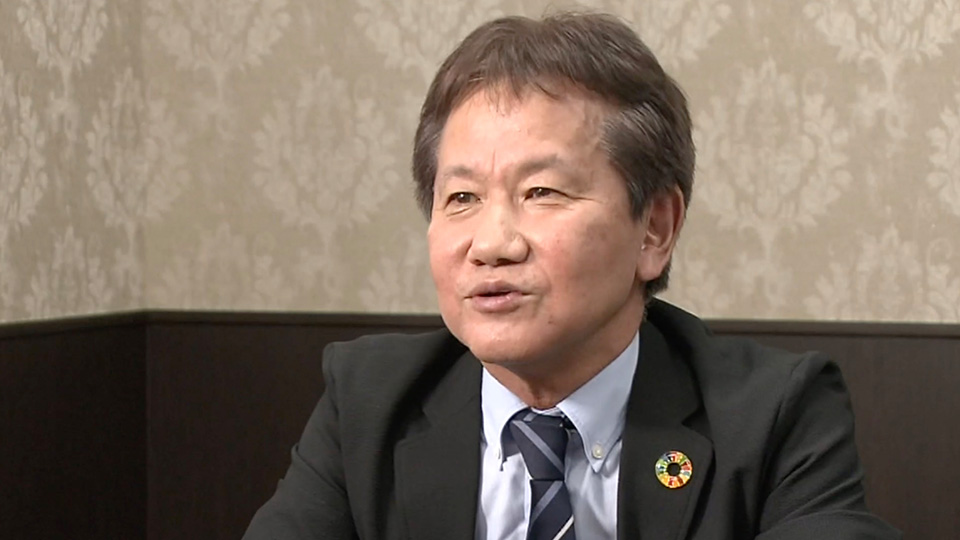One such approach is a short-time regular employee system. About 20 business owners took part in a seminar in Osaka last month to learn more.

At the seminar, the instructor told participants that even those who work for 60 hours a month or twice a week, for example, can be hired as regular employees.
The system enables people who cannot work full time due to childcare, nursing care or schooling responsibilities to be employed with the full benefits of regular workers. This includes health insurance.
Working 60 hours a week
Mamantre, a company handling clerical work in Ashiya City, Hyogo Prefecture, hired its first short-time regular employee in April.
Fujimoto Akiko worked as a freelancer for the company as she couldn't do full time due to the responsibilities of childcare and other work.
The firm decided to hire her as a regular employee because of an increase in the number of tasks it needed her to do.
"I'm grateful to get social insurance. The sense of reassurance makes me work even harder," says Fujimoto, who now works 60 hours per month and comes into the office once a week.

Company President Suzawa Mika sees the system as an opportunity to secure talented workers.
"It's really difficult for small and midsize companies to secure human resources," she says. "I believe many people would want to work if they could become a regular employee for two days a week."
Stereotypical view remains in Japan
A government survey shows that the percentage of businesses that introduced the short-time regular employee system stood at 16.8 percent in 2022.
Yamada Hisashi, a visiting researcher at the Japan Research Institute, points out that the stereotype view that regular employees work long hours remains in Japanese society and hinders a flexible working style.
"It would be difficult to distribute jobs to short-time working employees if their roles are vague. Companies need to create a workplace where work is standardized and shared with colleagues so it can be covered by them," he says.
Making life easier for post-retirement workers
Some companies are trying to improve conditions for employees who work beyond retirement.
The firms hope that raising their pay and allowing them to stay on the job for longer will help maintain workforces amid a growing labor shortage.
Employees at home-furnishing chain Nitori Holdings have usually retired at age 60. They could then choose to stay until 65 at reduced salaries.

The company is now extending the age to 70. Wages are also being hiked up to about 90 percent of what the workers were making before retirement.
The new system applies to all qualified employees.
Ohki Mitsuru, General Manager of the Organization Development Office of Nitori Holdings, said: "Our biggest hope for post-retirement employees is that they instruct younger workers. I think there are many things that haven't been experienced by the younger generation. We hope senior workers will provide lots of opinions to improve the company."

Firms with similar plans include automaker Suzuki and trading house-related IT firm Itochu Techno-Solutions.
The companies hiked the wages of older workers from April to the same levels they earned before retirement.
Switching jobs
Last year, Japan's working-age population, or those aged 15 to 64, stood at 73,950,000, down 13,000,000 from the peak in 1995. Experts expect a further decline in coming years.
In addition to a dwindling hiring pool, Japanese companies now face a different work ethic in which people are more open to switching jobs.
It used to be common for Japanese workers to stick with one company throughout their entire career. But a recent survey of 800 new employees conducted by Mynavi Corporation, a Tokyo-based employment information firm, shows that more than 20 percent of the respondents plan to change jobs in less than three years.
